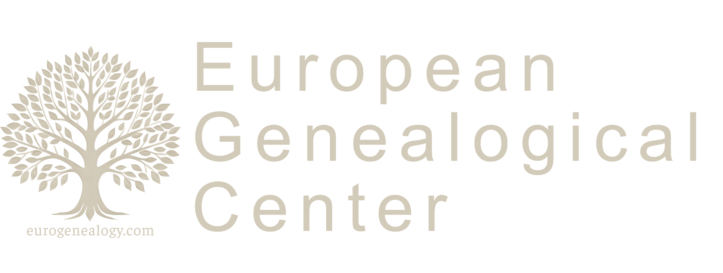Genealogical research in Serbia: tracing ancestors & confirming heritage
Discover your ancestry dating back to the 17th century
Archival search and family history research in Serbia
Genealogical research in Serbia opens a compelling gateway into the complex historical, cultural, and ethnic mosaic of the Balkans. Located at the crossroads of Eastern and Western civilizations, Serbia has been shaped by centuries of imperial rule, religious transformations, and population movements. From the medieval Serbian Despotate to Ottoman administration, Habsburg governance in northern regions, and later the formation of Yugoslavia, each period left behind distinct archival footprints. This layered past gives Serbian genealogy a remarkable richness and depth. At the European Genealogical Center, we offer professional services to help clients discover their Serbian ancestry through the analysis of church registers, civil archives, censuses, notarial documents, and property records. Archival materials in Serbia often span from the 18th century to modern times, but earlier sources can also be found in ecclesiastical and regional archives, making it possible to uncover multi-generational family histories grounded in original documentation.
While some clients contact us to confirm their Serbian origin for citizenship or legal inheritance procedures, many seek to understand their familial and cultural heritage in greater depth. Our team conducts detailed research in national and regional archives, church repositories, historical parishes, and municipal offices. We examine handwritten registers, locate missing documents, authenticate records, and prepare certified translations where needed. Our family history books combine genealogical charts, scanned historical documents, family narratives, and photographs (when available), creating a meaningful, visually rich narrative of ancestral legacy. Special attention is given to the historical diversity of Serbia — including Orthodox, Catholic, Muslim, and Jewish communities — as well as the multilingual nature of documents, which may appear in Serbian, Church Slavonic, Latin, Hungarian, or Croatian, depending on the region and period. This diversity requires expert interpretation and contextualization of archival findings.
Sources of genealogical research in Serbia
The most essential sources for Serbian genealogy are metric books — registers of baptisms, marriages, and burials — which were meticulously maintained by Orthodox, Catholic, Lutheran, and Jewish communities. In Serbian Orthodox parishes, early records were typically written in Church Slavonic, transitioning later into vernacular Serbian, while in Vojvodina and other multiethnic areas, entries may be found in Hungarian, German, Latin, or Croatian. Civil registration began in the late 19th and early 20th centuries, complementing church records and significantly expanding genealogical possibilities. These materials provide not only vital statistics but often contain marginal notes about godparents, witnesses, occupations, social standing, property ownership, and family relationships. In Jewish communities, synagogue registers provide comparable records of births, marriages, and deaths, sometimes accompanied by additional family notes, economic details, and migration information. Together, these sources allow us to trace familial lines, household structures, and interregional connections within the former territories of Serbia and its neighbors.


To achieve a more complete understanding of family history, we also investigate a wide array of supplementary archival sources that provide rich biographical detail, social context, and historical perspective. These include personal employment files, school and university records, military conscription rolls, emigration documents, and professional guild lists — particularly from the 19th and 20th centuries, reflecting broader societal changes. In rural areas, cadastral maps, land registries, and tax records reveal property ownership, economic circumstances, and local community structures. Detailed local censuses, when available, list household members by name, age, profession, occupation, and family relationships, often providing invaluable cross-references to parish registers. Urban notarial documents — including wills, dowries, contracts, court proceedings, and inheritance disputes — offer further insight into family networks, financial matters, and social connections spanning multiple generations. By combining these sources with vital records, we reconstruct a rich, nuanced, and historically grounded portrait of your ancestors' lives.
Neighboring countries where we conduct research
Examples of our research
Below you can review examples of research reports received by our customers:
Prices for genealogical services in Serbia
You can find a detailed price list and description of all services of European Genealogical Center here
Prices for genealogical services in Serbia
Genealogical research
From €1500
Tracing family history back to the 17th century
Biographical search
From €500 to €1500
Establishing the life story of an individual and their close relatives
Nationality confirmation
From €400 to €1200
Identifying details about a person’s ethnic origin
Document search
From €100 to €1000
Obtaining certificates, parish registers, and civil registry records
Family history book
From €2500
Creating a unique publication describing the genus history
Family history website
From €2000
Development of a personal website dedicated to your family’s history
Submit a request, and we will contact you shortly
You can also reach us directly by sending an email to: european.genealogical.center@gmail.com or writing to us in Telegram

european.genealogical.center@gmail.com
© 2025
All rights reserved
All rights reserved
Contact us:

